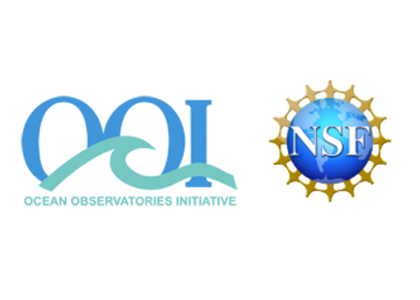The NSF- funded Ocean Observatories Initiative (OOI) deploys sensors that measure key biogeochemical properties (pH, pCO2, bio-optics, nitrate, dissolved oxygen) on both moored and mobile autonomous platforms across arrays in the Atlantic, Pacific and Southern Oceans. These sensors provide enormous potential to support the oceanographic community in studying a wide range of important interdisciplinary questions. However, OOI biogeochemical sensor data have thus far been underutilized by the oceanographic community, as the application of these rich data streams to quantify biogeochemical fluxes and answer many questions of scientific interest (e.g., rates of air-sea CO2 flux, productivity, and export; comparison across sites; monitoring of long-term changes) require effective calibration and validation, including post-deployment human-in-the-loop processing. To broaden the use of OOI biogeochemical sensor data and increase community capacity to produce analysis-ready data products, we have acquired NSF support to bring together scientists with expertise in biogeochemical sensor calibration and analysis from both within and beyond the current OOI user community to develop guidelines and best practices for using OOI biogeochemical sensor data. These recommendations will be collated in a published white paper that will be shared with the broader oceanographic community to build data user capacity and enable new scientific applications of OOI biogeochemical sensor data.
This activity was initially planned as a small workshop in conjunction with the 2021 Ocean Carbon & Biogeochemistry (OCB) summer workshop (June 2021 in Woods Hole, MA). Given the uncertainties related to the pandemic, we would like to identify potentially interested participants early and query their preferred level(s) and mechanism(s) of engagement with this activity to help inform our planning efforts. We anticipate that the development of best practices for different biogeochemical variable sets will require several months of commitment, likely a combination of online engagement and participation in an in-person workshop that will either take place in 2021 or 2022. We envision that members of the oceanographic community may have varied levels of interest in such an activity (e.g., development of detailed OOI sensor data processing guidelines vs. broader scientific applications of OOI biogeochemical data streams). If you have any interest in potentially participating in this activity at any level, please fill out this google form.





